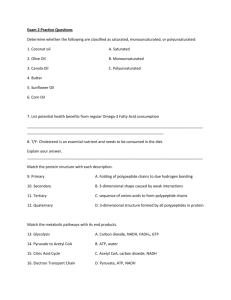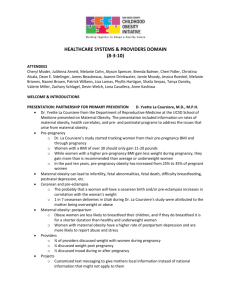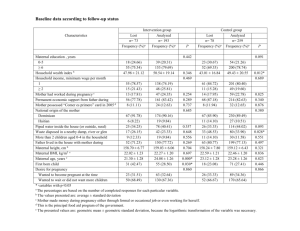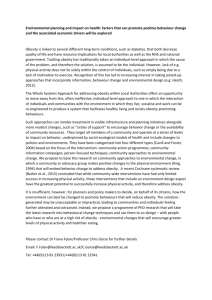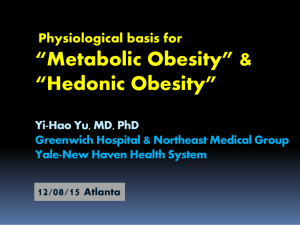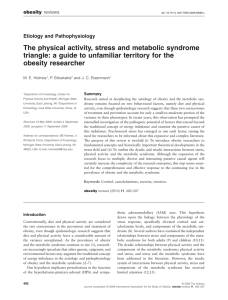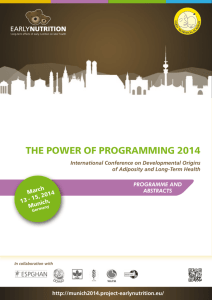consequences for maternal and offspring metabolic health
advertisement
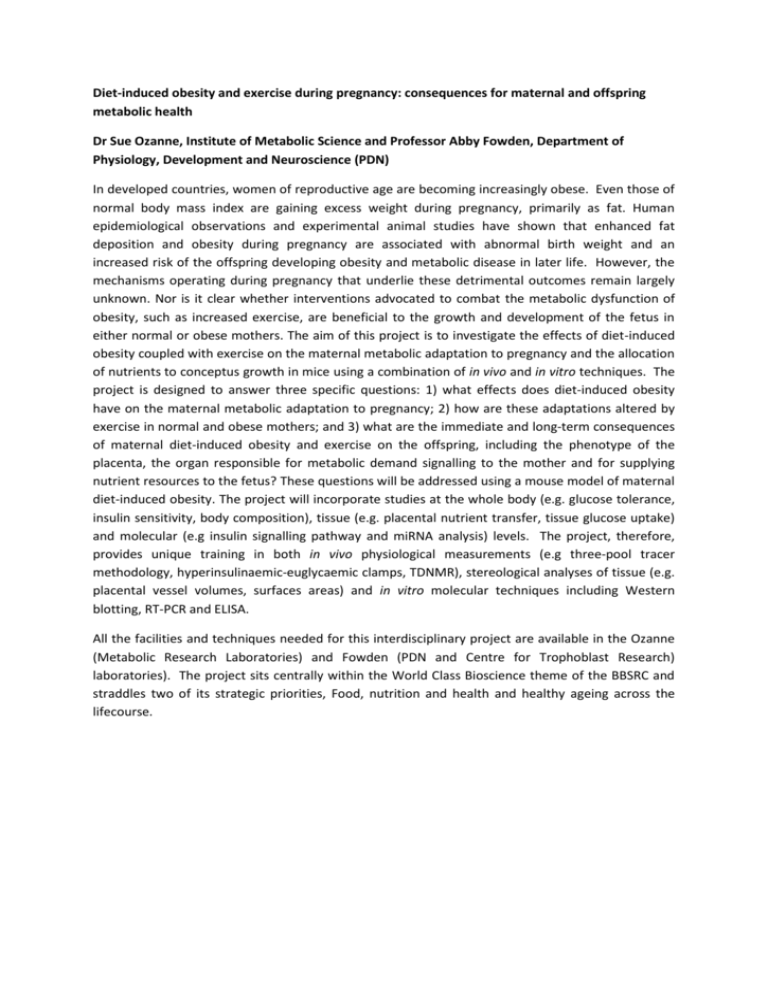
Diet-induced obesity and exercise during pregnancy: consequences for maternal and offspring metabolic health Dr Sue Ozanne, Institute of Metabolic Science and Professor Abby Fowden, Department of Physiology, Development and Neuroscience (PDN) In developed countries, women of reproductive age are becoming increasingly obese. Even those of normal body mass index are gaining excess weight during pregnancy, primarily as fat. Human epidemiological observations and experimental animal studies have shown that enhanced fat deposition and obesity during pregnancy are associated with abnormal birth weight and an increased risk of the offspring developing obesity and metabolic disease in later life. However, the mechanisms operating during pregnancy that underlie these detrimental outcomes remain largely unknown. Nor is it clear whether interventions advocated to combat the metabolic dysfunction of obesity, such as increased exercise, are beneficial to the growth and development of the fetus in either normal or obese mothers. The aim of this project is to investigate the effects of diet-induced obesity coupled with exercise on the maternal metabolic adaptation to pregnancy and the allocation of nutrients to conceptus growth in mice using a combination of in vivo and in vitro techniques. The project is designed to answer three specific questions: 1) what effects does diet-induced obesity have on the maternal metabolic adaptation to pregnancy; 2) how are these adaptations altered by exercise in normal and obese mothers; and 3) what are the immediate and long-term consequences of maternal diet-induced obesity and exercise on the offspring, including the phenotype of the placenta, the organ responsible for metabolic demand signalling to the mother and for supplying nutrient resources to the fetus? These questions will be addressed using a mouse model of maternal diet-induced obesity. The project will incorporate studies at the whole body (e.g. glucose tolerance, insulin sensitivity, body composition), tissue (e.g. placental nutrient transfer, tissue glucose uptake) and molecular (e.g insulin signalling pathway and miRNA analysis) levels. The project, therefore, provides unique training in both in vivo physiological measurements (e.g three-pool tracer methodology, hyperinsulinaemic-euglycaemic clamps, TDNMR), stereological analyses of tissue (e.g. placental vessel volumes, surfaces areas) and in vitro molecular techniques including Western blotting, RT-PCR and ELISA. All the facilities and techniques needed for this interdisciplinary project are available in the Ozanne (Metabolic Research Laboratories) and Fowden (PDN and Centre for Trophoblast Research) laboratories). The project sits centrally within the World Class Bioscience theme of the BBSRC and straddles two of its strategic priorities, Food, nutrition and health and healthy ageing across the lifecourse.
